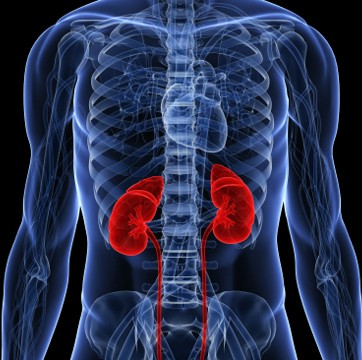 One of the most severe reactions associated with type-2 diabetes medication Byetta involves kidney damage or failure. The U. S. Food and Drug Administration encourages patients receiving Byetta injections to be familiar with the symptoms and signs of kidney problems. Reports indicate that persons with hypertension (high blood pressure) or diabetes are the most at risk for developing kidney problems.
One of the most severe reactions associated with type-2 diabetes medication Byetta involves kidney damage or failure. The U. S. Food and Drug Administration encourages patients receiving Byetta injections to be familiar with the symptoms and signs of kidney problems. Reports indicate that persons with hypertension (high blood pressure) or diabetes are the most at risk for developing kidney problems.
Unfortunately, kidney disorders often present “nonspecific” symptoms (side effects which may be associated with other conditions). Because of this, kidney damage is often difficult to diagnose. Early signs of kidney damage may involve:
Many cases of kidney function loss do not show symptoms until the condition has worsened significantly. Signs that kidney problems have progressed to end-stage renal disease may include but are not limited to:
During treatments with incretin mimetics such as Byetta (exenatide), patients should have frequent blood pressure and urine examinations to test kidney function.
Patients should contact a healthcare professional at the onset of kidney symptoms to ensure safety. Failing to treat kidney problems may result in a worsening of the disorder, leading to irreparable damage.
Treatments for minor cases generally involve therapies with ACE (angiotensin-converting enzyme) inhibitors or ARBs (angiotensin receptor blockers). Severe cases may require dialysis or kidney transplants. Untreated kidney failure may result in death.
If you have developed kidney problems related to treatments with Byetta (exenatide), get legal aid from our attorneys by completing our “Request Attorney Assistance” form.
0."/>